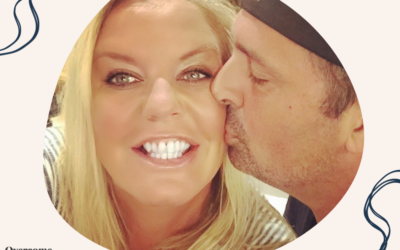How do you know your voice is silenced? What causes people to go silent?
Think about the environment in your home? Was it safe, kind, and conducive to talk things over, or was it loud, angry, and chaotic? Were you heard or told to shut up?
There’s a long list of what causes people to go silent:
- Verbal put-downs
- Bullying
- Being ignored
- Rage or anger
- Physical abuse
- Spiritual abuse
- Sexual abuse
- Divorce
- Infidelity
- Sudden death in the family
- Natural disaster
- Traumatic accident
- Threats of suicide
- The silent treatment
Being silenced can be very subtle, and you may not know it’s happening at the moment.
A change in your personality over time is one sign that someone or something is silencing you.
You start to realize you’re no longer the one with spunk and energy. You don’t want to be the planner of family gatherings and parties or the person who says yes to anything and everything. Over time, you realize you’re not so anxious to be all that.
People seem to be more distant and may even notice you’re not as involved or no longer the chatterbox of the group.
You begin to find yourself in the back pew instead of the front pew at church. You may even get to church late and leave early.
Or, you get to the point of no church, no social activities, and become so silent, no one can connect with you.
There are many reasons our voices can be silenced. It could be because of the insignificant things that you have experienced or the more obvious situations mentioned above.
It can happen to a small child or a grown adult and anyone in-between. There’s a lot of research done about child development and the impact of parents who are intentional with their communication in the early formative years. It gives the child a healthy start.
Parents give kids the tools needed to know how to respond and react to someone trying to silence them. In return, the child can communicate their discomfort to their parents and feel heard.
Parents who do not give their children the tools to communicate and respond to whatever comes their way may find their kids are more vulnerable to bullying and peer pressure during their early school years.
These children may never tell anyone, but the parents notice a change in their child.
As a kid, I was secure in who I was and rarely felt unliked. I was pretty clueless and thought everyone liked me. I don’t remember a time during my school years that I felt unloved or bullied. I guess you could put me in the “overly confident” category.
My grades were always excellent, but in nearly every report from teachers included this little note: “Anne is a great student, but she talks too much.”
I don’t remember my parents telling me to be quieter or even discussing the issue with me. I always felt loved and accepted by my parents and seven siblings. It wouldn’t have occurred to me that this situation silenced me.
So when and where did I begin to experience being silenced?
It’s easier to look back with all the understanding I have now and see where it began for me. Even though my story includes abuse, that was not when the silence started for me.
It was between the ages of 10 and 13. I had allergies, and as a result, I would stay inside to help my Mom do housework and help in the kitchen. I loved being with my Mom helping her make three meals a day. I’d set the table for the ten of us, bake, pack lunches for school, and help with dinner guests.
Her final question as we were preparing to sit down at the table was always, “Brught? Vassah? Schteel?”
She spoke it in the PA Dutch language, and it’s translated as “Bread? Water? Chairs?”
Is the bread on the table?
Did you put water in the glasses?
Are there enough chairs?
She wanted to make sure we had the basics needs of dinner ready to go.
Every day there were ten of us, but many times when we had guests, we might have had 25 or more people around the table. I always felt proud to be Mom’s helper.
My allergies kept me inside with my Mom more than I was with my siblings. I began to feel alone and separated from my sisters, who were outside, working in the garden, doing yard work, and cleaning around the house.
As I said, being silenced is subtle and can be unintentional. Mom was certainly not silencing me, but the feeling of being left out was real to me.
Feeling alone can be one of the signs of being silenced. What magnifies the feelings is you never verbalize any of it.
As a kid, it’s difficult to express how you feel and so you resort to being silent. I began feeling inferior and wishing I could be with my sisters more.
In our silence, we feel insecure and want what others have. It’s easy to look around and notice how everyone is living a life that looks perfect.
What I’m describing is not the result of abuse, but it is my experience of feeling silenced, alone, and excluded.
I want you to understand that none of it was intentional.
My silencing prompted me to work hard to please my parents. I wanted to be heard and win their approval.
Anyone who knows me would never say I was silenced or even a quiet person.
My sisters and I sang together as a trio, and I was the spokesperson for our group. We didn’t decide I would take on that role, but it seemed the natural one for me to play.
And of course, there was that little note on every report card.
Working harder became my voice, and I was living out the quote, “What you do speaks so loud I can’t hear what you’re saying.”
People who are silenced will be heard, which can lead to acting out in one of two ways.
- Acting out in negative ways, which leads to destructive behaviors.
- Acting out in positive ways, which could make them high achievers.
You might find yourself saying things like, “I’ll show you,” or “I’ll prove it to you.” Often these are because we want to be noticed or heard.
My Dad always said to me, “You’re little, but, oh my, dynamite comes in small packages.”
People described me as active, busy, and on the go. I had a nickname that’s known only to my siblings. (Please don’t ask me what it is.)
I never intentionally set out to prove anything to anyone, but as I look back, maybe that was my motivation.
Jonas remembers being referred to as being lazy. Somewhere along the way, he got the message, “I’m Lazy.” Because of this, he worked extra hard to prove to his family that he was not lazy.
To this day, Jonas has the nagging feeling that if he’s not busy, he must be lazy. The man is 73 years old and has projects out the wazoo.
Words, behaviors, and subtle messages silence us!
Feeling unnoticed and hearing the silent message that you’re lazy, gave Jonas the need to retreat to the sandbox and play with his tiny rubber made trucks.
Jonas is still a quiet guy, but his quiet presence has made him a man of peace.
We’ve talked a lot about the subtle messages we heard as kids and realized the truth that God works all things together for good. Not some things but all things.
That’s the good news for all of us who have experienced the trauma of silence. One day it will be redeemed for an outcome that may surprise us.
Unlike Jonas, I never felt like I was lazy, but I felt unnoticed. Because I wasn’t able to verbalize my feelings, I got very good at resorting to the silent treatment.
When words hurt me, or I was left out, or ignored, I would simply get quiet. I didn’t know how to talk through anything I was feeling.
The silent treatment can be a form of control. I resorted to that because it’s all I knew. If no one hears me, it just makes sense to be silent.
Having a conversation about anything that matters is too difficult. What you learn as a child, you take into your adult life unless you come to a crisis that forces you to look at your past.
Often people who use the silent treatment never tell the person they’re snubbing what they’ve done wrong. They simply sit and pout until the other person confronts them.
The person on the receiving end of a silent treatment feels hurt, abandoned, and like their words are falling on deaf ears.
The silent treatment is one of the most damaging relationship problems. There is never a resolution and the tension keeps growing.
We use the silent treatment to punish and regain control of a person and left unchecked it becomes a pattern of manipulative behavior and emotional abuse. To see the abuse of the silent treatment brings me to tears today.
I never knew how damaging this weapon would become in later years. I became a pro at the silent treatment. I used it on Jonas in our early days of being married. I used it on my kids as they embarked on their teen years.
I used the silent treatment to gain some control of the things that were totally out of my control. (I didn’t know it at the time.)
The list of reasons why we’re silenced is long, and the very last reason is the silent treatment.
I had no way of knowing how destructive it would become in my life, but I see it now. The silent treatment was my mode of operation.
At one point in my journey, it was clear to me that I needed to learn new skills.
Continuing the silent treatment to those I loved most was devastating and confusing.
Changing life long behaviors is extremely difficult and uncomfortable. The good news is that all of us are changeable. I didn’t always believe that!
My experience is a testimony to the fact we can change.
The silent treatment was so real to me that at times I still have the automatic response to resort to it. Then I remember how devastating it was for my family and me.
New information is the catalyst for change. As we learn, we grow and become more than we would ever know is possible.
It starts with learning new truths, learning new behaviors, and making the hard changes that take us to a life of peace and contentment.
If you feel silenced, reflect on your past and ask God to help you go back to the place where you feel it started.
Consider going for professional help or finding a trauma therapist to guide you through the deep-rooted trauma of silence.
What silenced you may not be on the list I mentioned, but the fact that you were silenced is the very reason you long for connection and understanding in your relationships.
You may have experienced being silenced, but you kept going. When nobody was listening, you were developing strength and character. You are strong and have a lot to offer to your family, community, and the world!
Your silence has developed your gifts and talents that the world needs.
You have a voice, and we want to hear from you.
The darkness of soul you have lived with has given you the capacity to be compassionate for those who are still living in silence.
You are not meant to live in the dungeon of silence. You were made for connection and to tell your story.
We’re listening.





